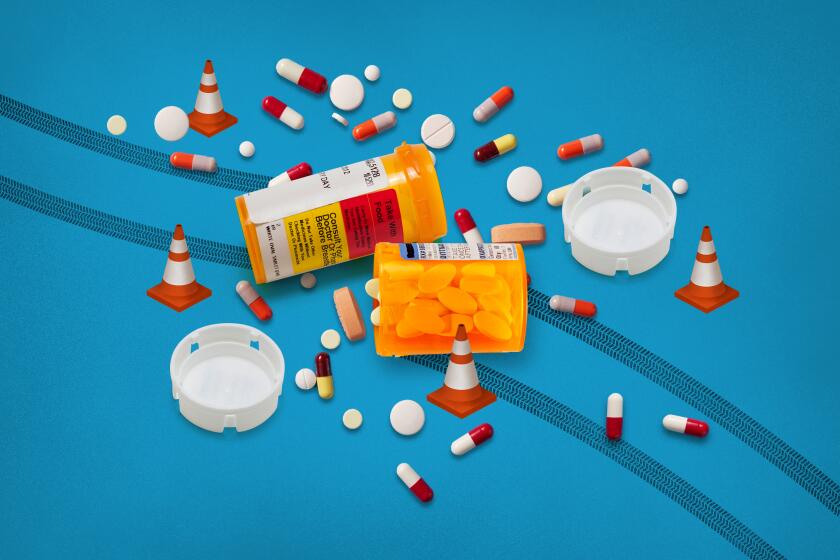Picking up a prescription? 6 tips to avoid dangerous pharmacy errors

Pharmacists are trained to safely dispense medications and avoid mistakes. But in recent years, a chorus of pharmacists have spoken out about how heavy workloads, especially at the big chain pharmacies, have led to dangerous errors.
In California alone, an estimated 5 million pharmacy errors happen every year, according to the state’s Board of Pharmacy.
The Times found in a review of citations issued to California pharmacies that the mistakes have harmed patients, sometimes seriously. Some patients received medicines that had been prescribed to other customers. Others took dangerously excessive amounts of medication because the dose filled by the pharmacy was too high or the instructions on the bottle were wrong.
As many as 9,000 Americans die each year after receiving the wrong prescription drugs or doses. Pharmacies are fighting a bill to shed light on the problem.
The chain pharmacies say the errors are rare and they are working to reduce them.
Patients can take action to protect themselves, according to experts, including those at the Institute for Safe Medication Practices. Here are their recommendations:
Know the details about the drug your doctor prescribed.
Doctors often send prescriptions electronically to the pharmacy. Ask the doctor for a duplicate paper copy that lists the drug, dose, instructions for taking it and reason it is being prescribed. Take the copy to the pharmacy when you pick up the medication. Open the bag before leaving the store and make sure the information on the bottle matches what your doctor prescribed.
Never assume anything if something about your prescription seems amiss.
If you open the bottle and find tablets of a different color than you were expecting, don’t assume the pharmacy switched to a different manufacturer of the medicine. Ask the pharmacist why the pills don’t look like those you picked up last month. Take the same precaution if anything else about your prescription seems strange. Asking questions could save you from a dangerous mistake.
Talk to the pharmacist.
If you are taking a new medication, pharmacists must offer you a consultation about how to take the drug safely. Take them up on the offer. Talking to the pharmacist will prompt them to double-check that the prescription dispensed to you is correct and can be safely taken according to the instructions on the bottle.
Note any unexpected side effects.
If you experience new side effects after beginning to take the prescription, call your doctor or the pharmacist. Tell them you are concerned there may have been a mistake.
Make sure the pharmacy has your contact information.
If the pharmacist discovers an error after you leave the store, they need a way to reach you.
Report any prescription error that occurs.
If a pharmacist mixed up your prescription with that of another customer, the other person could be taking the wrong drug. Call the pharmacy to get an explanation. Call your doctor too. And report the error to your state’s pharmacy board. California pharmacy regulators say they investigate every consumer complaint. You can report an error to California’s board at pharmacy.ca.gov.
More to Read
Inside the business of entertainment
The Wide Shot brings you news, analysis and insights on everything from streaming wars to production — and what it all means for the future.
You may occasionally receive promotional content from the Los Angeles Times.












